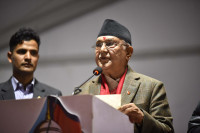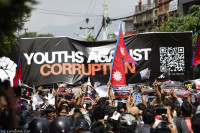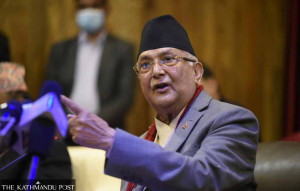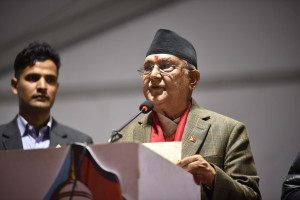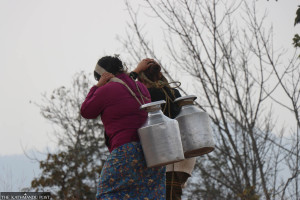Editorial
Tough question
Nepal needs serious discourse on controversy surrounding surrogacy
In the immediate aftermath of the April 25 quake, 26 newly born babies were evacuated by Israel from the disaster-stricken city of Kathmandu. The arrival of the infants—born to Indian surrogate mothers in Nepal—in Tel Aviv received extensive media coverage. Moving pictures of ecstatic same sex couples sparked an intense debate on the Israeli surrogacy law which only permits surrogacy for infertile heterosexual couples. Soon after, there was widespread criticism of the lopsided focus on the infants and not on the well-being of the surrogate mothers. The Attorney General of Israel, however, was quick to approve a plan to permit surrogate mothers carrying the fetuses of Israeli parents to enter the country. Meanwhile in Nepal, the entire episode came as a surprise to many.
To begin with, Nepal did not and still does not have any laws on surrogacy. But in December 2014 a Cabinet meeting decided to allow foreign couples to seek surrogacy services from foreign women in Nepal. Interestingly, this decision of the government coincided with the Indian government’s plan to present the Assisted Reproductive Technique Bill in the winter session of its Parliament. The bill was expected to further regulate India’s multi-billion dollar surrogacy industry but its legislature failed to pass it citing a lack of time. All the same, the Nepali government’s decision resulted in an influx of Indian surrogacy mothers. Reports of the exploitation of surrogate mothers along with the involvment of Nepali women soon followed. The clients are reportedly charged up to Rs 10 million for surrogacy services by the agencies that make all the arrangements, out of which the hospital receives Rs 4 million while surrogate mothers only receive Rs 300,000-400,000. Amidst all of this, last month, the Supreme Court directed the government to ban surrogacy until Nepal formulates laws on it. In response, the Cabinet decided to ban surrogacy services altogether last week.
Nepal’s tryst with surrogacy might have ended rather quickly but there are many unresolved issues. The fate of the surrogate mothers who are on their way to delivering the baby, for instance, remains unclear. The government should take the responsibility of meeting all their needs. It should also clarify its position on those women and if the infants born to them will face any legal hassles while leaving the country or not. They are, after all, the victims of the shortsightedness of the government. Furthermore, surrogacy was only permitted for foreign couples initially. The current ban, however, extends to Nepalis too. This is like throwing the baby out with the bath water as it could curtail the rights of same-sex couples and infertile heterosexual couples to have children. So, what the country needs is an extensive discourse on whether the state should allow surrogacy or not. The sudden manner in which surrogacy was first partially permitted and now banned does not do justice to this sensitive issue.




 10.12°C Kathmandu
10.12°C Kathmandu


